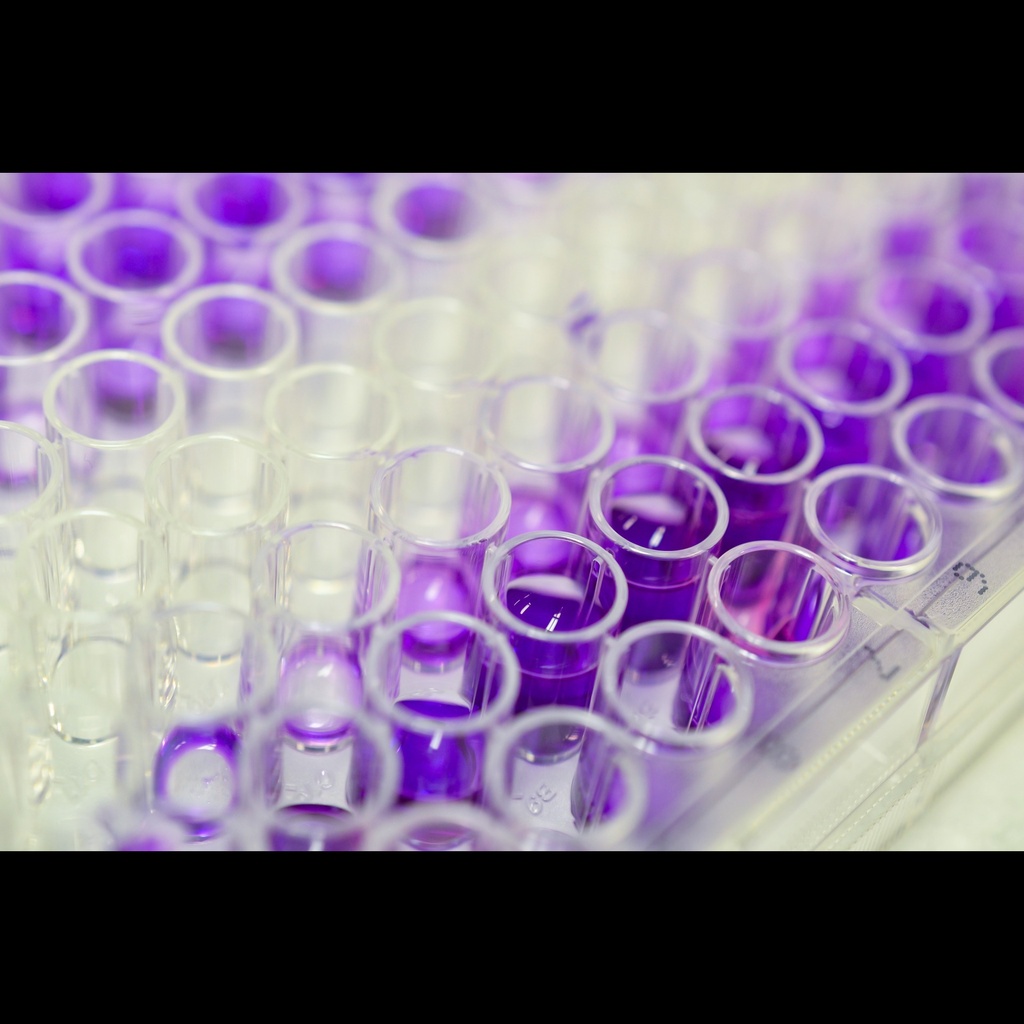Bovine Interferon Gamma IFNg ELISA Kit
Introduction
The Bovine Interferon Gamma (IFN-γ) ELISA Kit is a highly sensitive and specific enzyme-linked immunosorbent assay (ELISA) designed to quantitatively measure the concentration of bovine IFN-γ in various biological samples, such as serum, plasma, and whole blood. Interferon gamma (IFN-γ) is a key cytokine in the immune response, particularly in the regulation of viral, bacterial, and parasitic infections. It is primarily produced by T lymphocytes, natural killer (NK) cells, and macrophages during immune activation.
Product Components
The Bovine IFN-γ ELISA Kit contains all the necessary reagents to perform the assay, including:
- Coated Microplate: A 96-well microplate pre-coated with a monoclonal antibody specific for bovine IFN-γ. The IFN-γ present in the sample will bind to the capture antibody during the assay process.
- IFN-γ Standards: A set of recombinant bovine IFN-γ standards at known concentrations used to create a standard curve for quantification of the IFN-γ levels in the samples.
- Detection Antibody: A biotinylated detection antibody specific for bovine IFN-γ. This antibody binds to IFN-γ, forming a complex that can be detected in subsequent steps.
- HRP Conjugate (Horseradish Peroxidase): Conjugated to the detection antibody, HRP catalyzes a colorimetric reaction, producing a measurable signal.
- Substrate Solution: A substrate that reacts with the HRP enzyme, producing a color change (typically blue) that is proportional to the amount of IFN-γ present in the sample.
- Stop Solution: A solution used to stop the enzyme-substrate reaction, which allows the color intensity to stabilize for accurate measurement.
- Wash Buffer: A buffer used between assay steps to wash the wells, removing unbound material and reducing non-specific binding.
Assay Procedure
- Plate Preparation: The pre-coated microplate is ready for use. Wells should be labeled according to standards and samples.
- Sample and Standard Addition: Add the provided standards and unknown samples to the respective wells. IFN-γ in the samples binds to the capture antibody on the plate.
- Incubation: The plate is incubated for a specified time, typically 1-2 hours, to allow binding.
- Detection Antibody Addition: After washing, add the biotinylated detection antibody to the wells. This antibody binds specifically to the captured IFN-γ.
- HRP-Conjugate Addition: After additional washing, add the HRP conjugate to form a complex with the detection antibody.
- Substrate Addition: Add the substrate solution, which will undergo a color change in the presence of the HRP enzyme. The color change intensity is proportional to the amount of IFN-γ in the sample.
- Stop the Reaction: Add the stop solution to terminate the reaction.
- Measurement: Measure the optical density (OD) of each well at 450 nm using a microplate reader.
Key Features
- High Sensitivity: The kit is capable of detecting very low levels of IFN-γ in bovine samples, ensuring precise and reliable measurements.
- Wide Detection Range: The assay typically covers a concentration range from 0.1–10,000 pg/mL, suitable for a variety of experimental and diagnostic applications.
- Specificity: The monoclonal antibody and detection reagents are highly specific for bovine IFN-γ, minimizing cross-reactivity with other cytokines or molecules.
- Quick and Easy: The assay can be completed in approximately 2-3 hours, making it suitable for both high-throughput screening and individual experiments.
Applications
- Immune Response Monitoring: The Bovine IFN-γ ELISA Kit is widely used to monitor immune activation in response to infections, vaccination, or disease conditions. Elevated levels of IFN-γ indicate an active immune response, typically associated with Th1-type responses.
- Vaccine Efficacy Studies: The kit is commonly used in evaluating the immune response to vaccines, helping to assess the activation of protective immune mechanisms against pathogens.
- Infectious Disease Detection: IFN-γ is an important biomarker for detecting ongoing infections, such as Mycobacterium bovis (bovine tuberculosis), Brucella spp., or viral infections, and for assessing the progression of these diseases.
- Immunological Research: The kit is essential for studying immune mechanisms in cattle, particularly in response to challenges like pathogens, vaccines, or therapeutic interventions.
- Reproductive Health: IFN-γ plays a role in the regulation of reproductive processes in cattle. Monitoring its levels can provide insights into the immunological status of animals, including during pregnancy.
Handling and Storage
- Storage Conditions: Store the kit components at 2-8°C to maintain stability. Do not freeze the reagents, unless explicitly stated.
- Shelf Life: The kit is typically stable for 12 months from the date of manufacture when stored correctly.
- Sample Storage: Serum, plasma, or whole blood samples should be stored at -20°C or lower for long-term storage and thawed on ice prior to use.
Conclusion
The Bovine Interferon Gamma (IFN-γ) ELISA Kit is a reliable and sensitive assay designed to quantitatively measure IFN-γ levels in bovine samples. With its wide range of applications, including immune monitoring, vaccine studies, and infectious disease diagnostics, the kit is an essential tool for researchers and clinicians working with cattle. The easy-to-use and rapid protocol, combined with its high specificity and sensitivity, makes this kit an ideal choice for both basic research and clinical applications in veterinary immunology.

